No products in the cart.
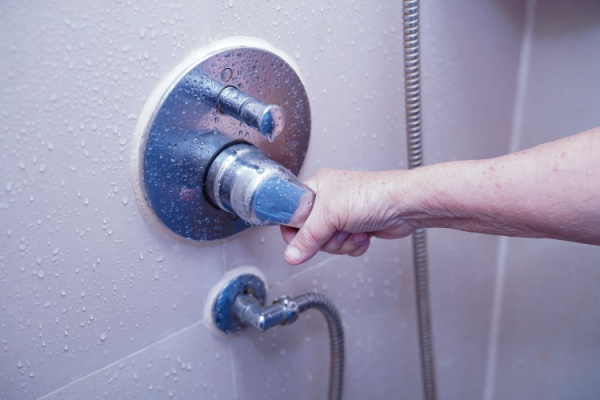
Exclusive Offer!
Stay safe 24/7 anywhere you go, around town or at home.
Stay safe 24/7 where you spend the most time. Easy to use & affordable.
Turn your smartphone into a personal safety device with this 24/7 monitoring app that’s the ultimate resource for keeping you safe.
Pair it with the Aster app to maximize ease of use and convenience. Click one button to call emergency services.
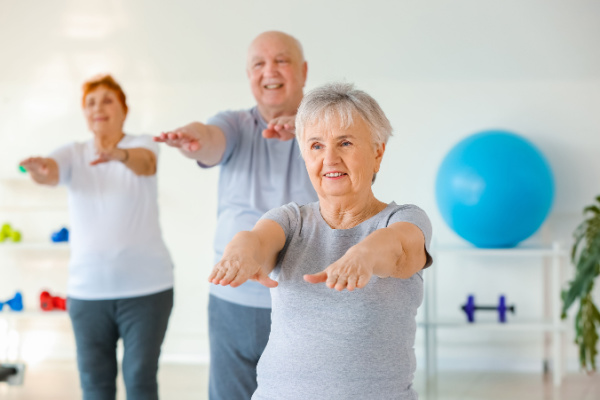
| Summary • As people age, one of the changes they may experience is impaired balance. Poor balance can lead to falls and serious injuries. • One way to offset this is by doing regular balance exercises. Exercises that strengthen your leg muscles are best, as strong legs can prevent falls when walking. • Some balancing exercises to try include transitioning from sitting to standing, standing on one foot, and practicing heel-to-toe walking. • Any physical activity, even if it’s just a regular walk around the block, goes a long way to improve balance and build strong muscles to prevent accidents and injuries. |
There are many things to embrace as we age. Our well-earned silver hair, the joy of grandchildren, and the extra time to enjoy the things we love.
However, one thing that can be difficult to deal with as an aging adult is losing the physical ability to balance.
Physical balance plays a vital role in our lives. It helps us move around independently and do daily activities like showering, cooking, and even going for walks. Impaired balance, though, can lead to serious problems, such as dangerous falls that cause serious injury.
The good news is that there are some simple balance and strength exercises you can do to help prevent falls. These exercises can also help you maintain your physical strength to continue doing the things you love.
In this article, we’ll look at the best exercises for aging adults who want to improve their balance so that they can embrace all the beauty of growing older.
Before beginning any kind of balance program, it’s important to speak to your doctor or physical therapist first. They can recommend the best exercises for you to do based on your personal needs.
While balance training is important as we age, some people have physical limitations and won’t be able to do the exercises we’ll explain below — and that’s perfectly okay.
Lastly, a vital part of good balance is wearing the correct shoes. When you do any balance exercise, ensure you’re wearing shoes that are supportive and that fit well. Exercising in the wrong shoes can lead to twisted ankles or even head injuries.
When doing the balance exercises that we’ll explain below, be sure to start slow. Don’t rush any of the movements, especially when shifting your weight from one leg or foot to the other. Also, when you’re just beginning, only do each exercise for a few seconds. Over time, you can build up to doing them for a longer period.
Here are some of the best balance exercises for aging adults to try.
This exercise can help you build stronger leg muscles, which are important for good balance.
You can start this exercise in a seated position on a sturdy chair. You should be sitting comfortably with your feet flat on the floor.
Next, lean your chest forward so that it’s over your toes. Then shift your weight forward while squeezing your glutes and slowly rising into a standing position.
Carefully sit back down in the chair and repeat standing up ten times if you are comfortable with this motion.
| Key Point: Have a Sturdy Support Surface in Front of You Although all you really need for this exercise is a chair, it’s a good idea to do this movement with a sturdy surface — such as a table or kitchen counter — in front of you. This ensures that you have something to grip onto if you feel unsteady as you stand up. |
If you’re looking for a more simple exercise to start with, give this one a go.
Stand with your feet shoulder-width apart and remain in this position for 10 seconds. The more regularly you do this exercise, the longer you’ll be able to stand in this position.
As your balance improves, try working your way up to standing completely still for 30 seconds.
This is another light balance exercise for beginners. Start by standing with your feet together and holding this position for 10 seconds.
Again, you’ll want to do this often enough to work your way up to 30 seconds in this position.
This is a slightly more challenging exercise that you can do as your balance improves.
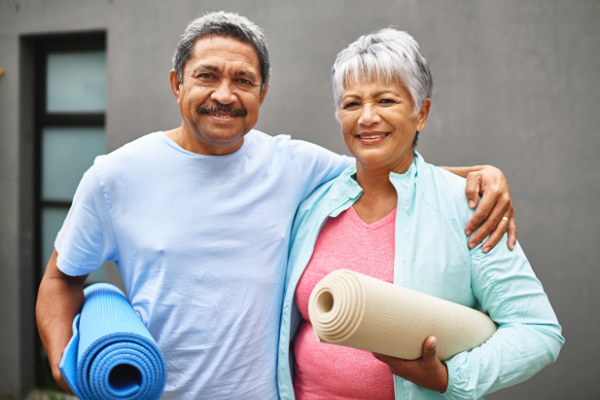
This single-leg balance exercise, also known as the flamingo stand, involves standing on your left leg and holding this position for 10 seconds. Your other right leg should be bent behind you.
Lower your left leg and place your foot flat on the floor. Now you can slowly transfer your weight onto your right leg, lift it behind you, and hold this pose for 10 seconds.
| Key Point: Keep Your Eyes Open Whenever you attempt a balance position where you’ll only be standing on one leg at a time, ensure that you keep your eyes open during the exercise. It may be tempting to close your eyes to focus on your body movements, but keeping your eyes open can improve your balance on one leg. |
You may want to start this one with a surface in front of you to hold onto and then work your way toward doing the exercise without using anything for support.
As mentioned earlier, building your leg strength is key to better balance. Strong legs also lowers your fall risk while walking.
Walking heel to toe is one way to build your leg muscles without intensive strength training.
To do this exercise, put your right foot in front of your left foot so that your right heel touches the toes on your left foot.
Then, move your left foot in front of your right, putting your weight on your left heel. From there, transfer your weight to your toes.
Repeat the same step with your left foot and try to walk this way for 20 steps.
Back leg raises are a great way to work the buttocks and lower back muscles and improve your balance while you’re at it.
Your starting position for this exercise should be standing on both feet hip-width apart. Make sure you have a sturdy chair to hold onto for this exercise.
Position yourself behind the chair and grasp the backrest. Gently raise one leg straight back, ensuring that your toes are not pointed and your knee remains unbent.
Hold this position for a few seconds, then slowly bring your leg down to the starting position. Then repeat it with your other leg.
Do this movement five times to start with, and aim to work your way up to 15 times per leg.
This exercise is a great way to train your body in what to do if you lose your balance while walking: taking a step forward or back to regain your balance.
| Key Point: When to Start Doing Lunges It’s important to note that you should only do this exercise once you’ve spent at least a few weeks practicing the basic movements we’ve mentioned above. This is because you’ll need good balance and strength to get this exercise right without hurting yourself. |
Start by standing up straight with your hands on your hips. Next, bring your right foot forward while bending your knee.
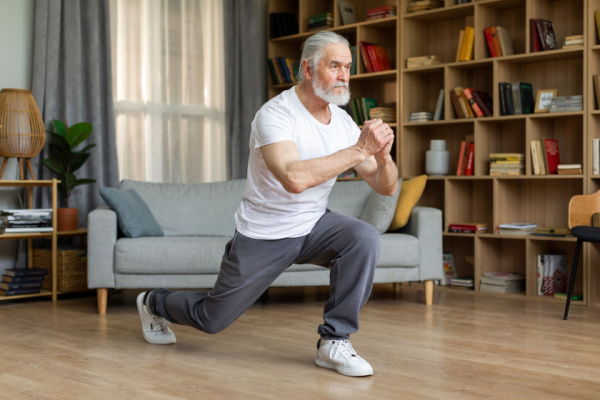
You’ll need to lower yourself until your thigh is parallel to the floor. Hold this position for 30 seconds while breathing deeply.
Return to your starting position and repeat this movement on your left leg. You can do this exercise five to 10 times on each leg.
Whether it’s regular walks around your neighborhood or an occasional slow hike, any form of physical activity can help improve your balance.
The more you move, the stronger your muscles become, and the more steady you’ll be on your feet. Not to mention, regular exercise has endless benefits for aging adults.
So, aside from the balancing exercises described above, try to get other physical activities into your routine if you can.
Regularly performing balance exercises will significantly improve this physical aspect of your well-being.
However, even if you’re doing these exercises and getting regular physical activity in your routine, aging adults are still prone to falling.
We know that this is a worrying thought, but the perfect solution does exist — a medical alert device from LogicMark.
The Freedom Alert Plus can get aging adults the help they need if they fall. It has built-in fall detection technology, which will alert 911 if the person experiences a fall.
Visit our website to find the ideal safety solution for you or your aging loved ones.

For many aging adults, a medical alert device is a key tool in helping them age in place safely and independently. But not all devices are created equal. One essential feature that can make a major difference
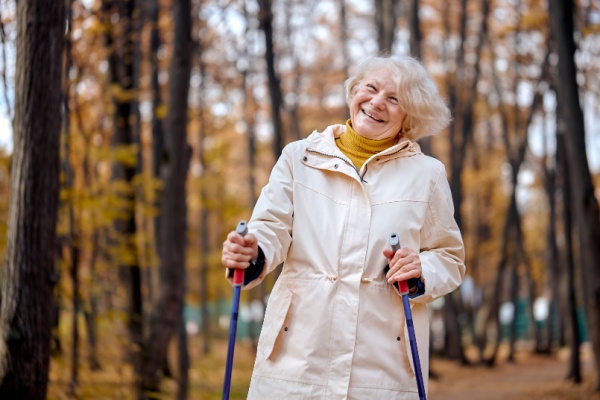
Spending time outside is one of the best ways to boost both physical and mental well-being

When a medical emergency strikes, every second counts. Whether it’s a fall, heart attack, stroke, or another critical event
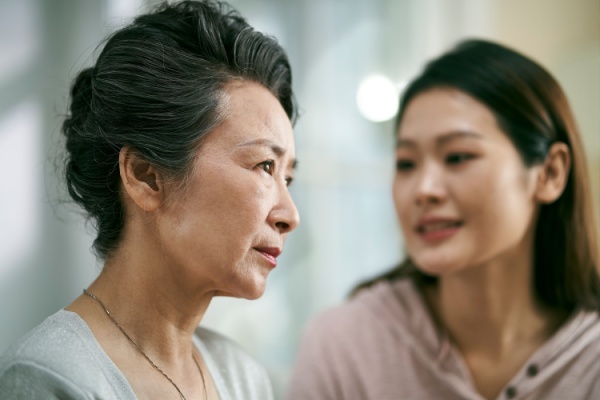
Medical alert devices can be life-saving tools for seniors, providing quick access to emergency help when needed. However, convincing older adults to adopt these devices isn’t always easy.
QUICK LINKS
RESOURCES